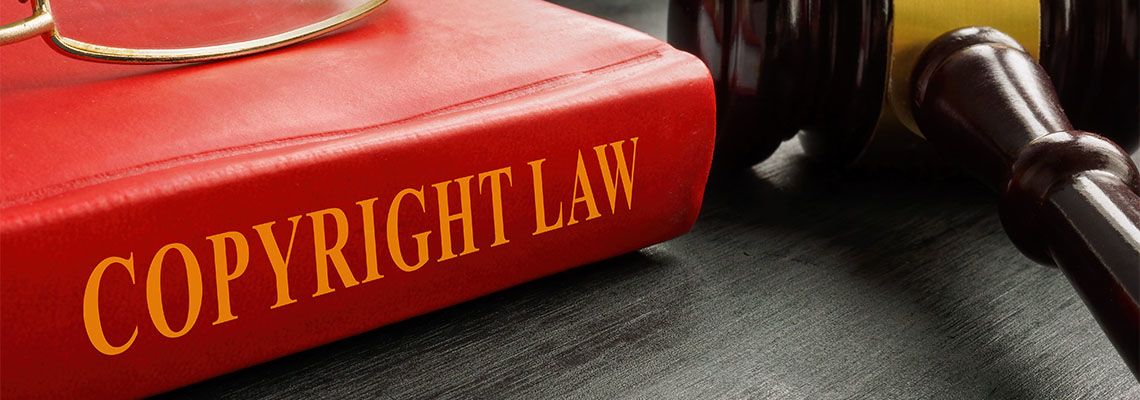
What Is a Copyright Termination?
For creators and copyright holders, comprehending copyright termination is pivotal. It can influence how they manage their intellectual property rights, potentially altering their economic prospects. Additionally, it can empower them to regain control over their work, even after they've been assigned or licensed to others.
Copyright termination is a legal provision that serves as a lifeline for creators and copyright holders. It's essential to understand this concept, as it can have significant implications on the ownership and control of creative works. Ream Law Firm, L.L.C. can help you understand copyright termination, shedding light on its legal basis, purpose, processes, and the types of works eligible for termination.
What Is Copyright Termination?
Copyright termination, sometimes referred to as the "termination right," allows authors or their heirs to terminate any grant, assignment, or license of copyright after a certain period.
The concept of copyright termination has its roots in U.S. copyright law. It was introduced in the Copyright Act of 1976, providing a second chance for authors who may have signed away their rights without realizing their work's future value.
The primary purpose of copyright termination is to protect authors and their heirs. It offers them an opportunity to renegotiate contracts and reclaim rights to their work, particularly when the original agreement may not have been favorable.
Almost all types of works, including music, books, and artwork, are eligible for copyright termination, provided they meet certain criteria set out in the Copyright Act.
How Does Copyright Termination Work?
The process of copyright termination involves several steps, including serving a notice of termination to the current copyright holder. The notice must comply with specific statutory requirements and be served within a certain timeframe.
Termination rights can be exercised by the author or, if the author is no longer living, their heirs. This includes the author's spouse, children, or grandchildren.
Termination rights can be exercised during a five-year window, which starts 35 years after the grant of rights was made, or 40 years in the case of publishing rights.
Procedures and Formalities Involved in Exercising Termination Rights
Exercising termination rights requires adherence to strict procedures and formalities. It is crucial to seek legal guidance from experienced attorneys like Dale J. Ream of the Ream Law Firm, L.L.C., who can walk you through the complexities of these processes.
Why Copyright Termination Matters
Copyright termination can have a profound impact on creators and their heirs, offering them an opportunity to regain control over their works and potentially reap greater financial rewards. The reversion of rights back to the author or their heirs can lead to new licenses, assignments, or grants, often under more favorable terms.
Economic Implications for Copyright Holders and Licensees
For copyright holders and licensees, copyright termination can result in significant economic implications. They may lose rights to profitable works, altering their revenue streams.
There have been several successful copyright terminations, with outcomes that have reshaped the control and profitability of creative works. These cases underscore the potential benefits of exercising termination rights.
Legal Considerations and Challenges
While the opportunity for copyright termination offers many potential benefits, there are numerous legal considerations and challenges that copyright holders must navigate carefully.
These challenges may include determining the precise timing for the notice of termination, interpreting who constitutes the author's "heirs," and addressing any works made "for hire," which typically do not qualify for termination rights. Furthermore, disputes may arise over the definition of an "author" in collaborative works and the complexities involved in works with multiple authors.
It is essential for those considering copyright termination to consult with legal advocates who understand the ins and outs of intellectual property law to fully understand these intricate issues and to ensure the proper execution of termination rights.
Frequently Asked Questions (FAQs) About Copyright Termination
What is the precise timeframe for serving a notice of termination?
The notice of termination must be served no earlier than 35 years after the grant of rights, but no later than two years before the termination date. This means the window for serving notice is between 33 and 35 years after the original grant.
Can all types of works be subject to copyright termination?
Most types of creative works can be subject to termination, but works made "for hire" are generally excluded. Additionally, the work must have been created by an author who is a U.S. citizen or resident and must have been published or registered in the U.S.
Who can exercise copyright termination rights?
The original author(s) of the work can exercise termination rights, or if they have passed away, their surviving spouse, children, or other statutory heirs may do so. It's important to note that these rights can only be asserted once.
What happens if there are disputes regarding who qualifies as an "heir"?
Disputes over heirs are often settled in probate court. It is advisable for potential heirs to resolve any disagreements about their status before initiating a termination action.
Is it possible to waive the right to terminate a copyright?
U.S. copyright law does not allow authors to waive their termination rights in advance. Even if an author contractually agrees not to exercise termination rights, such agreements are generally considered unenforceable.
Can termination rights be transferred to another party?
Termination rights are personal and cannot be sold, given away, or otherwise transferred independently of the author's other copyright interests.
How does copyright termination affect works with multiple authors?
For works with multiple authors, termination rights can be exercised only if a majority of the authors or their heirs agree to the termination. Each co-author or heir must individually meet the statutory requirements to qualify.
Understand Your Rights Around Copyright Termination
Given these challenges, the role of legal counsel is crucial. An experienced copyright attorney like Dale J. Ream of the Ream Law Firm, L.L.C., can guide creators and copyright holders through the process, helping them reclaim their rights and reshape their futures.